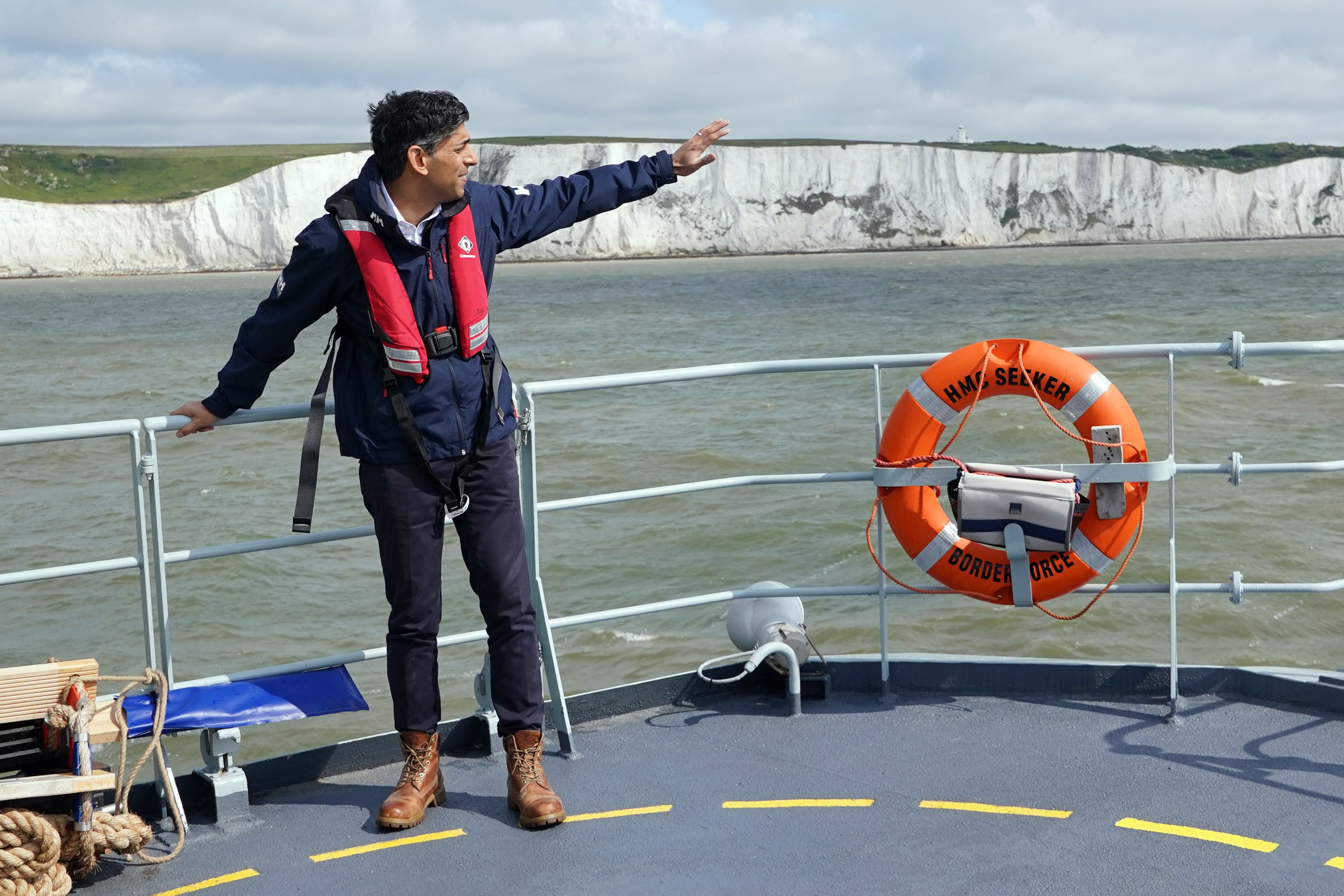Government on course to overturn 10 Lords’ amendments to Rwanda Bill
The proposed legislation seeks to compel judges to regard Rwanda as safe.

The Government appeared on course to overturn all Lords’ amendments to its Rwanda deportation legislation, as Prime Minister Rishi Sunak maintained hopes of a first flight departing this spring.
Conservative MPs accused peers of trying to “wreck” the Safety of Rwanda (Asylum and Immigration) Bill, after they inflicted 10 defeats on the Government in the Lords.
MPs voted by majorities ranging from 69 to 78 to reject the first four amendments made to the Bill by peers, an indication of a relatively stress-free Monday for the Government.
The amendments overturned included an attempt by peers to ensure the Bill complies with domestic and international law, and a requirement that Parliament cannot declare Rwanda to be a safe country until the treaty with its promised safeguards is fully implemented.
We’ve made good progress. Boat numbers were down by a third last year. That shows that our plan is working, but in order to finish the job, we need the Rwanda scheme through
Home Office minister Michael Tomlinson said Rwanda has a “long and proud history” of integrating asylum seekers and refugees and said the UK Government had “published evidence” in support of Rwanda being a safe country.
He also told the Commons: “They are wrecking amendments.”
The proposed legislation seeks to compel judges to regard the east African country as safe in a bid to clear the way to send asylum seekers who cross the Channel in small boats on a one-way flight to Rwanda.
For Labour, shadow Home Office minister Stephen Kinnock said of the 10 amendments: “They each serve to make this shambolic mess of a Bill marginally less absurd, and they would serve only to put in statute what ministers have actually promised from that despatch box.
“Not one of these amendments is designed to prevent the departure of flights to Rwanda, as the Prime Minister has repeatedly and wrongly implied that they will.”
Virgin Galactic can send six people into space for less than this Government wants to spend sending one person to Rwanda
Conservative former minister Sir John Hayes questioned whether peers were “clueless or careless” about what is happening with immigration.
Tory colleague Alexander Stafford (Rother Valley) told the debate: “Any attempts to wreck this Bill is an open-door policy to let human traffickers traffic people illegally into our country, to upset our local communities and ultimately, unfortunately, more people will die if this Bill doesn’t go through because of the loss of life in the Channel.”
Mr Stafford said of peers: “They clearly don’t care about the people who are dying in the Channel trying to cross it. They clearly don’t care about the cost to the public purse of these hundreds of thousands illegal immigrants coming over.
“Their lordships clearly don’t care about the everyday person in the street.”
Conservative MP Sir Bill Cash (Stone) criticised amendments made by peers and urged Parliament to “get on” with the Bill, saying MPs should be “very firm” with the Lords.
SNP MP Patrick Grady (Glasgow North) said: “It’s not really the Safety of Rwanda Bill, it’s the Safety of the Prime Minister Bill.
“It’s all been designed to try and keep certain elements of his backbenchers happy and on that test it seems to have failed, just as it has failed on practically every other criteria that it could be assessed against.”
Labour MP Neil Coyle (Bermondsey and Old Southwark) said: “Virgin Galactic can send six people into space for less than this Government wants to spend sending one person to Rwanda.”
The scheme could cost taxpayers nearly £2 million for each of the first 300 asylum seekers sent to Rwanda, according to the National Audit Office (NAO).
Tickets for Virgin Galactic flights initially went on sale for about £158,000 each, and last summer cost about £356,000 per person – putting the cost of six space tourists at £2.13 million.
Ahead of the debate, Downing Street said the Government believed it had “the right Bill” and “it remains our plan to get it through as quickly as possible”.
Officials “are identifying and have identified the cohort of people who will be the first to board flights” to Rwanda, No 10 said.
Not one of these amendments is designed to prevent the departure of flights to Rwanda, as the Prime Minister has repeatedly and wrongly implied that they will
“We’re obviously continuing to work at pace on that, such that the first flights are ready to go in the weeks after the Bill passes,” the Prime Minister’s official spokesman said.
The Bill is currently moving between the Commons and the Lords until both Houses can agree the wording of it, a process known as ping-pong.
The Commons goes into its Easter recess at the close of business on March 26, with peers heading away from Westminster a day later, meaning that if the Lords maintain their resistance to the legislation it is unlikely to pass before the break.
But officials believe that will still leave just enough time for Mr Sunak to meet his pledge of getting a plane in the air this spring.
The Prime Minister said: “I am still committed to the timeline that I set out previously, which is we aim to get a flight off in the spring.
“It’s important that we get the Rwanda scheme up and running because we need to have a deterrent.
“We need to make it clear that if you come here illegally, you won’t be able to stay and we will be able to remove you. That is the only way to properly solve the issue of illegal migration.
“We’ve made good progress. Boat numbers were down by a third last year. That shows that our plan is working, but in order to finish the job, we need the Rwanda scheme through.”
Bookmark popover
Removed from bookmarks